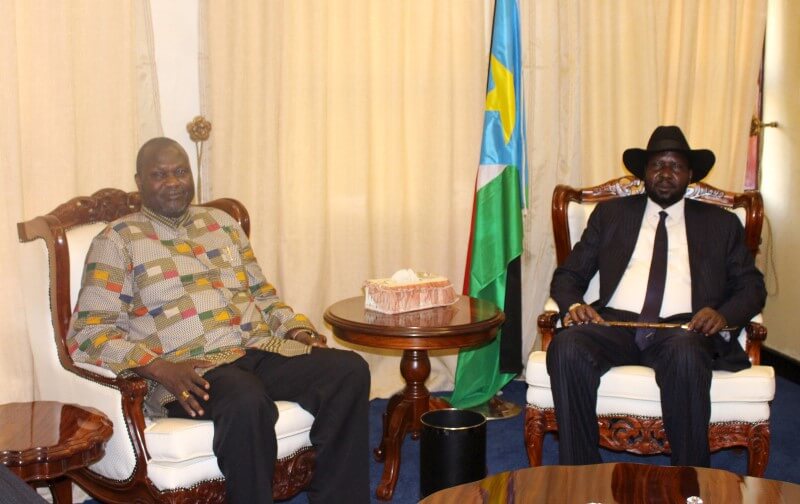By Sebastien Malo
NEW YORK (Thomson Reuters Foundation) – A call by South Sudan leaders to nix plans for an international tribunal seeking justice for victims of war-time atrocities was met with dismay by experts and advocates on Wednesday. South Sudanese President Salva Kiir and Vice President Riek Machar, a former foe, proposed that such a tribunal be replaced by a commission that could grant immunity from prosecution rather than dole out disciplinary justice. “Disciplinary justice – even if delivered under international law – would destabilize efforts to unite our nation by keeping alive anger,” they wrote in an editorial published in The New York Times. Human Rights Watch, a New York-based watchdog group, objected to their proposal, saying the pair was putting their own self-interests above those of their people.
“Their proposal to scrap trials is a self-serving attempt to evade justice,” said Elise Keppler, international justice associate director at Human Rights Watch.
Under terms of a peace agreement signed in August, a hybrid court is to be set up by the African Union to prosecute offenses committed in South Sudan.
Human Rights Watch’s opposition was echoed by legal scholars.
Ioana Cismas, former consultant to the U.N. Special Rapporteur on the promotion of truth, justice, reparation and guarantees of non-recurrence, said justice was critical following conflicts such as the two-year war in South Sudan that killed thousands of people and displaced millions of others. “Reconciliation cannot be done through a commission that works for two years and then wraps everything up,” she told the Thomson Reuters Foundation.
“Reconciliation requires the re-establishment of a relation of trust between victims and perpetrators as well as citizens and institutions,” she said. “This can’t occur without justice in the broader sense, which must include truth seeking as well as criminal justice and other institutional reforms.” Paola Gaeta, a professor of international law at Geneva’s Graduate Institute, also said meting out justice was critical.
“What could be the prospect of a lasting peace if the people see in power those who have massacred them?” she said.
Kiir’s sacking of Machar as his deputy helped ignite the war in South Sudan in 2013, splitting the country along ethnic lines.
(Reporting by Sebastien Malo, Editing by Ellen Wulfhorst. Please credit the Thomson Reuters Foundation, the charitable arm of Thomson Reuters, that covers humanitarian news, women’s rights, trafficking, property rights and climate change. Visit http://news.trust.org)
Call by South Sudan leaders to nix international tribunal met with dismay

By Sebastien Malo















